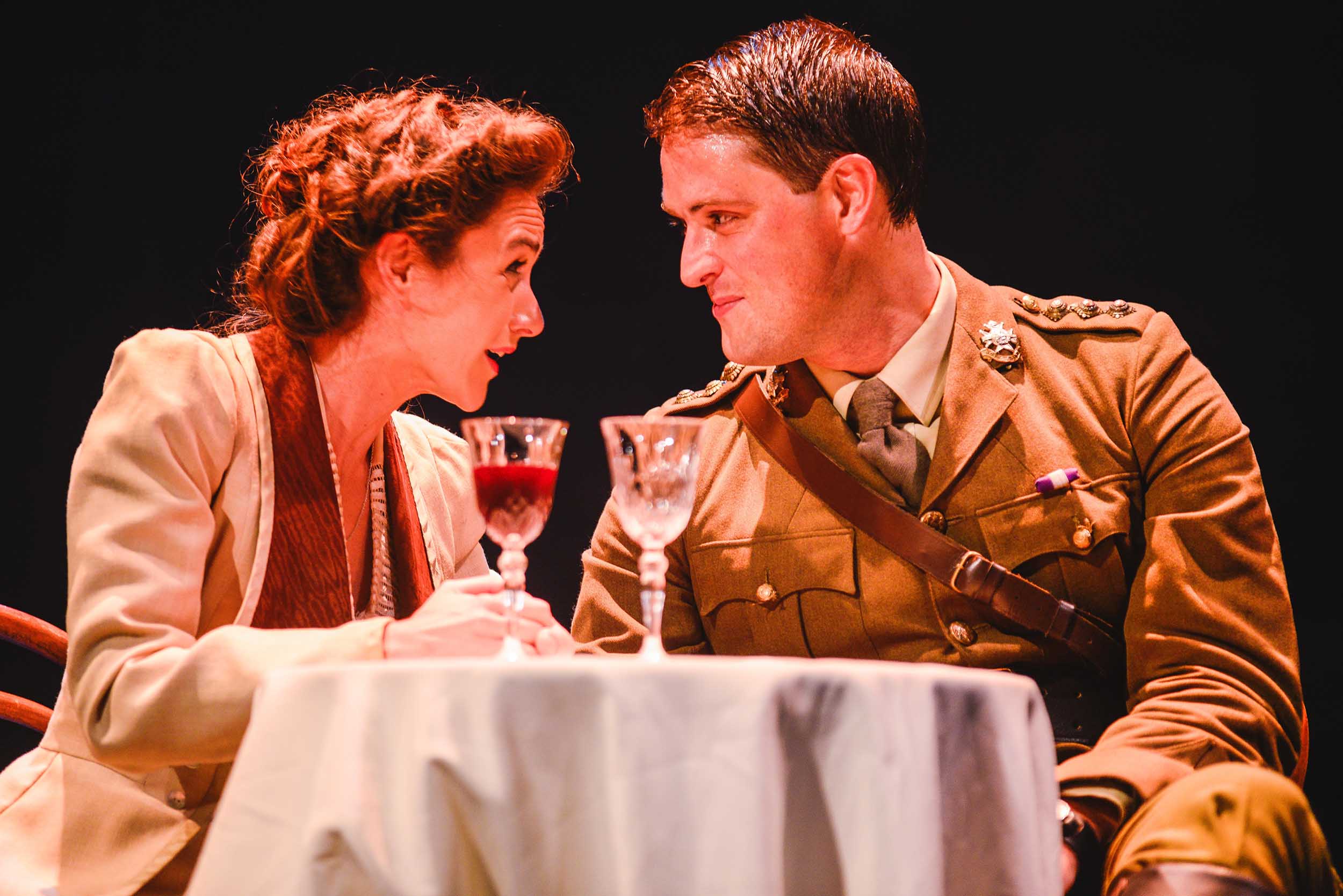Based on the true story of a World War 1 British regiment who find a printing press in the middle of a decimate Ypres (or “Wipers” as the uneducated Tommies call it), this production tries to be comedy, drama and biopic all at once. Sadly this proves to be its undoing.
Taken as a comedy, the smug and rather snobbish tone is off-putting: the working class characters are characterised as slow and stupid (the very title seeming like a cruel public school joke when viewed in this context). There’s more than a hint of Blackadder Goes Forth here, spliced with song and dance routines reminiscent of Oh! What a Lovely War. Mix in some ‘Allo ‘Allo accents and it all feels a bit over-familiar. References to Churchill and women getting the vote are especially too right-on. Like the humour it all feels forced, with nearly all punchlines as visible as a struck match in no man’s land.
Sitting awkwardly among this are tiny specks of pathos, with the best example being a poem to a fallen comrade. This is a heart-stopping little dramatic moment among all of the overdone comedic mugging: the lighting dims and the audience are drawn in. However, the fallen comrade is a character so thinly sketched in the first act that his loss isn’t really felt.
This is perhaps the greatest problem with this play: it’s inspired by the fascinating stories of real men, but none of them are given much depth. They fare better than the women involved, who feel like token afterthoughts representing wives, nurses or duplicitous comedy whores (war is truly a man’s game). James Dutton as Roberts seems to be channelling Rik Mayall in his performance, and (like most of the dialogue) it seems a bit trite. George Kemp is essentially second lead as Pearson and is endearing but similarly two dimensional. The framing story only seems tacked on to permit a little coda about these two men; it isn’t especially insightful.
It’s a shame as the staging is nicely done with songs and advertisements from the real Wipers Times presented on stage to great effect. Everything looks the part and none of the actors are bad (Clio Davies in particular goes to town while playing a few small roles). There is a sense that this story has been a labour of love for writers Ian Hislop and Nick Newman and a real attempt to highlight an overlooked World War 1 primary text and the men behind it. Ultimately this isn’t achieved. The lack of a clear narrative becomes an issue when it’s sacrificed for easily guessable jokes, with the second act becoming ploddingly episodic. A judicious edit on the running time wouldn’t have gone amiss. We may be going through the mud together, but to what end and for what purpose is never made clear.
